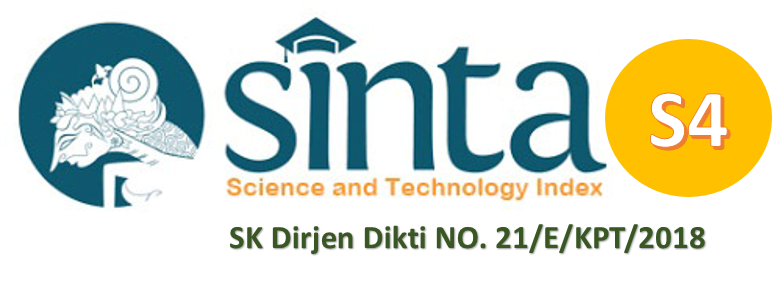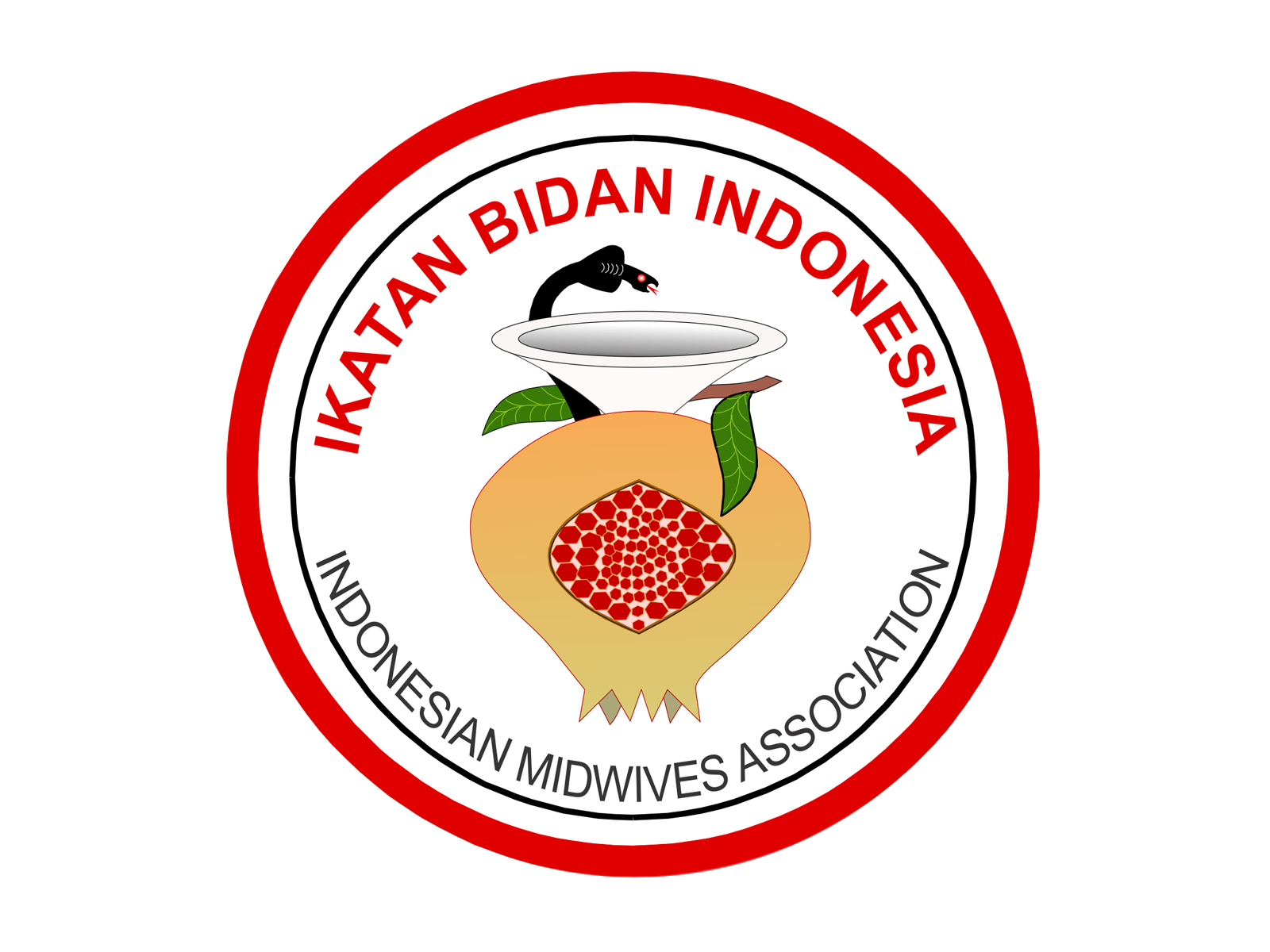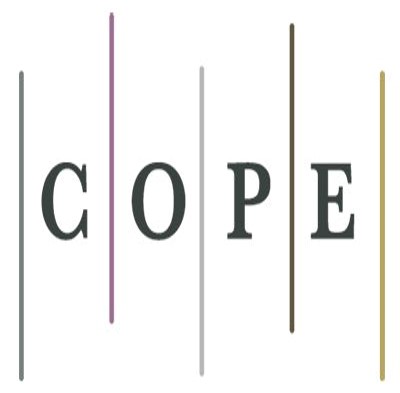EFEKTIVITAS PENDIDIKAN KESEHATAN METODE PEER GROUP TERHADAP TINGKAT PENGETAHUAN DAN SIKAP PERSONAL HYGIENE SAAT MENSTRUASI
Abstract
Remaja adalah masa transisi dari masa anak-anak ke masa remaja, individu mulai mengembangkan ciri-ciri abstrak dan konsep diri menjadi lebih berbeda. Batasan usia remaja adalah 10-24 tahun, ditandai adanya perubahan fisik, emosi dan psikis. Masa remaja merupakan suatu periode pematangan organ reproduksi manusia dan sering disebut masa pubertas. Masa remaja merupakan persiapan menjadi orang tua, untuk itu perlu memiliki kesehatan reproduksi prima sehingga dapat mencetak generasi yang sehat
References
2. Proverawati. 2010. Menarche Menstruasi Pertama Penuh Makna. Yogyakarta. Nuha Medika
3. Putri, Nicky Antika. Ajeng Setianingsih. 2014. Hubungan Pengetahuan dan Sikap terhadap Perilaku Personal Hygiene Menstruasi. Artikel Penelitian. Jurnal Ilmu Kesehatan Masyarakat Vol.5 No. 01 Maret 2016.
4. Irawati, Nyorong. Riskiyani, 2013. Studi Akses Terhadap Media Kesehatan Reproduksi Pada Kalangan Remaja Di Sma Negeri 9 Bulukumba Kabupaten Bulukumba. Diakses tanggal 11 September 2016 on : //repository.unhas.ac.id/ bitstream/handle/=1
5. Rahayu, Aminoto, Madkhan. 2011. Efektivitas Penyuluhan Peer Group Dengan Penyuluhan Oleh Petugas Kesehatan Terhadap Tingkat Pengetahuan Tentang Menarche. Jurnal Ilmiah Kesehatan Keperawatan. Volume 7. Gombong: STIKES Muhammadiyah
6. Romlah, T. 2001. Teori dan Praktek Bimbingan Kelompok. Malang: UN
7. Aisah, Siti. Junaiti Sahar. Sutanto Priyo Hastono. 2008. Pengaruh Edukasi Kelompok Sebaya terhadap Perubahan Perilaku Pencegahan Anemia Gizi Besi Pada Wanita Usia Subur. Jurnal Keperawatan Vol.2 No.1 Oktober 2008.
8. Notoatmodjo, S. 2010. Metodologi Penelitian Kesehatan. Jakarta. Rineka Cipta.
9. Dahlan, Sopiyudin. 2010. Statistik Untuk Kedokteran dan Kesehatan. Jakarta : Salemba Medika
10. Winerungan, Ester Maria. Esther Hutagaol. Ferdinand Wowiling. 2013. Hubungan Pengetahuan Kesehatan Reproduksi dengan Kejadian Iritasi Vagina Saat Menstruasi pada Remaja di SMP Negeri 8 Manado. Ejournal Keperawatan Vol.1 No.1 Agt 2013
11. Maidartati. Sri Hayati. Legi Agus Nurhida. 2016. Hubungan Pengetahuan dengan Perilaku Vulva Hygiene pada Saat Menstruasi Remaja Putri. Jurnal Ilmu Keperawatan Vol. IV No.1 April 2016.
12. Notoatmodjo, Soekidjo. 2005. Promosi Kesehatan, Teori dan Aplikasi. Rineka Cipta. Jakarta.
13. Notoatmodjo, Soekidjo. 2007. Promosi Kesehatan dan Ilmu Perilaku. Rineka Cipta. Jakarta.
14. Mellanby AR. Phelps FA. Crichton NJ. And Trip JH. 1995. School Sex Education : An Experimental Programme with Educational and Medical Benefit. British Medical Journal.
15. Backett-Millburn and Wilson S. 2000. Understanding Peer Education : Insights from a Process Evaluation. Health Education Research. Vol.15 No.1
16. Green, J. 2001. Peer Education. Global Health
17. Amelia, Coryna Rizky. 2014. Pendidikan Sebaya Meningkatkan Pengetahuan Sindrom Pramestruasi pada Remaja. Jurnal Kedokteran Brawijaya Vol.28 No.2 Agustus 2014
18. Rakhmat J. 2001. Psikologi Komunikasi. Remaja Rosda Karya. Bandung.
19. Green, LW. Health Promoting Planning : An Education and Environmental Approach. University of Texas Health Science Center at Houston. 1991
20. Sriasih, NGK. NW Ariyani. Juliana Mauliku. AA Istri Dalem Cinthya Riris. 2013. Pengaruh Pendidikan Seksualitas Remaja oleh Pendidik Sebaya terhadap Pengetahuan dan Sikap Remaja tentang Bahaya Seks Bebas. Jurnal Skala Husada Vol.1
Please find the rights and licenses in Jurnal Ilmiah Bidan (JIB). By submitting the article/manuscript of the article, the author(s) agree with this policy. No specific document sign-off is required.
1. License
The non-commercial use of the article will be governed by the Creative Commons Attribution license as currently displayed on Creative Commons Attribution-NonCommercial-ShareAlike 4.0 International License.
2. Author(s)' Warranties
The author warrants that the article is original, written by stated author(s), has not been published before, contains no unlawful statements, does not infringe the rights of others, is subject to copyright that is vested exclusively in the author and free of any third party rights, and that any necessary written permissions to quote from other sources have been obtained by the author(s).
3. User/Public Rights
JIB's spirit is to disseminate articles published are as free as possible. Under the Creative Commons license, JIB permits users to copy, distribute, display, and perform the work for non-commercial purposes only. Users will also need to attribute authors and JIB on distributing works in the journal and other media of publications. Unless otherwise stated, the authors are public entities as soon as their articles got published.
4. Rights of Authors
Authors retain all their rights to the published works, such as (but not limited to) the following rights;
- Copyright and other proprietary rights relating to the article, such as patent rights,
- The right to use the substance of the article in own future works, including lectures and books,
- The right to reproduce the article for own purposes,
- The right to self-archive the article (please read out deposit policy),
- The right to enter into separate, additional contractual arrangements for the non-exclusive distribution of the article's published version (e.g., post it to an institutional repository or publish it in a book), with an acknowledgment of its initial publication in this journal (Jurnal Ilmiah Bidan).
5. Co-Authorship
If the article was jointly prepared by more than one author, any authors submitting the manuscript warrants that he/she has been authorized by all co-authors to be agreed on this copyright and license notice (agreement) on their behalf, and agrees to inform his/her co-authors of the terms of this policy. JIB will not be held liable for anything that may arise due to the author(s) internal dispute. JIB will only communicate with the corresponding author.
6. Royalties
Being an open accessed journal and disseminating articles for free under the Creative Commons license term mentioned, author(s) aware that JIB entitles the author(s) to no royalties or other fees.
7. Miscellaneous
JIB will publish the article (or have it published) in the journal if the article’s editorial process is successfully completed. JIB's editors may modify the article to a style of punctuation, spelling, capitalization, referencing and usage that deems appropriate. The author acknowledges that the article may be published so that it will be publicly accessible and such access will be free of charge for the readers as mentioned in point 3.













